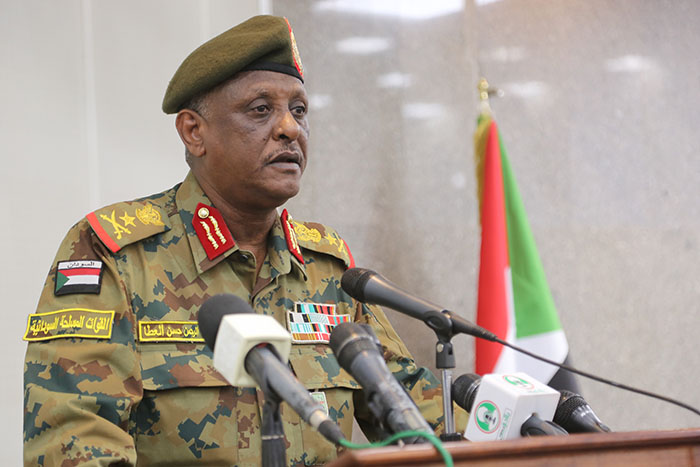In a move challenging the ongoing efforts to end the war, Yasir al-Atta, a member of Sudan’s ruling council and a high-ranking military official, has directed the formation of an alternative governing body.
Al-Atta, the Army’s Assistant Commander-in-Chief, instructed pro-military Popular Resistance Committees to establish parliaments at both state and national levels. These committees would then appoint a prime minister and state governors, bypassing any negotiated power-sharing agreements.
This action signals al-Atta’s opposition to compromise with the Rapid Support Forces (RSF), a paramilitary group that has been fighting the army for 11 months. The plan also aims to exclude political groups accused of backing the paramilitary forces.
In a speech to troops in Sennar, al-Atta outlined a plan for the Popular Resistance Committees to elect representatives at the municipality and state levels. These representatives would then choose the national parliament or “Federal People’s Parliament.”
He stipulated that this federal parliament would then select a prime minister and cabinet. Afterwards, they would inform the president and vice president of their choice.
Al-Atta went further in his proposed power structure to say that state parliaments would select governors, who would then recommend their cabinet to the president. Al-Atta framed it as a democratic process, questioning, “Isn’t this a system with elected civilians?”
The military leader also warned the Forces of Freedom and Change (FFC) that if they reject it, international actors will be unable to support them and change the course of events. He claimed that the Sudanese people had already made their decision and tasked the army with its implementation.
The FFC advocates for a different path. They propose a ceasefire followed by a comprehensive national conference involving all political parties, except the former regime’s National Congress Party. This dialogue would determine Sudan’s future and pave the way for elections.
The military’s continued rejection of the FFC stems from accusations that they support the Rapid Support RSF paramilitary group.
This has led to increased tensions and a prolonged conflict. In recent months, government-controlled states have actively recruited and armed civilians through Popular Resistance Committees, aiming to bolster their forces against the RSF.
Furthermore, these states have dissolved existing local structures formed after the December Revolution, including the Resistance Committees and FFC activities. The Popular Resistance Committees are now tasked with fulfilling the functions previously held by the banned committees.

